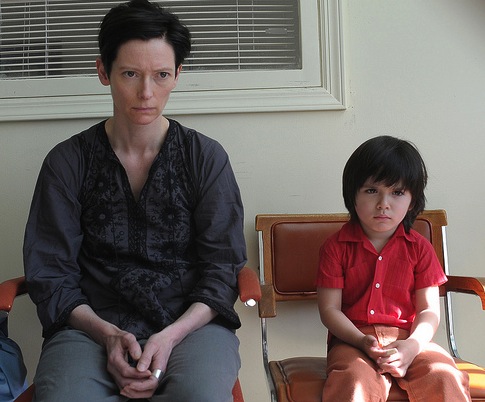 A great performance is a hard experience to define. Is it inhabiting a great character, like Rooney Mara in The Girl with the Dragon Tattoo? Personifying the honest qualities of a real person, like Meryl Streep in The Iron Lady? Or does something truly great performance have to dig even deeper? Your response to a “great” performance comes from your own set of standards, but for myself, immersion is key—and, in that light, there’s nothing like Tilda Swinton’s breathtaking portrayal of a woman tortured by her familial existence in We Need to Talk About Kevin in 2011.
A great performance is a hard experience to define. Is it inhabiting a great character, like Rooney Mara in The Girl with the Dragon Tattoo? Personifying the honest qualities of a real person, like Meryl Streep in The Iron Lady? Or does something truly great performance have to dig even deeper? Your response to a “great” performance comes from your own set of standards, but for myself, immersion is key—and, in that light, there’s nothing like Tilda Swinton’s breathtaking portrayal of a woman tortured by her familial existence in We Need to Talk About Kevin in 2011.
Swinton’s Eva is at the center of director Lynne Ramsey’s expressionistic drama, and she’s a character whose zest for life has no bounds. Eva travels the world, experiences anything that crosses her path just for the thrill and eventually finds true love in the schlubby, adoring Franklin (John C. Reilly). They move in to a New York City apartment, they settle down and life is pretty much perfect.
Then Eva gets pregnant.
Eva’s life downward spirals after the birth of her son Kevin, who transforms his mother’s life into a living hell from Day 1. As a baby, it’s incessant screaming (but only when he’s with Eva, never with Franklin). When he’s a toddler, Kevin is a pint-sized ball of chaos—but again, only around Eva. As he grows up, it’s clear that Kevin is a sociopath, driven by the mental destruction of his mother. Franklin thinks Eva’s nuts—what does there son have to gain from constantly terrorizing her?—but it’s clear, from her point of view, that love and reconciliation are two things she’ll never obtain from Kevin.
 As Kevin grows up (played in his teen years by up-and-comer Ezra Miller), his snarling grin and pointed death stares penetrate Eva’s frail state of being even more aggressively. Swinton allows her self to be broken by the attacks, but always adhering to the responsibilities of motherhood. She has to love her son, whether she does or not. The way Swinton handles the emotional complexity of Eva’s predicament is what transcends her performance to something great. Dealing with Kevin his a balancing act—until one pivotal action drops a nuclear bomb on the entire situation.
As Kevin grows up (played in his teen years by up-and-comer Ezra Miller), his snarling grin and pointed death stares penetrate Eva’s frail state of being even more aggressively. Swinton allows her self to be broken by the attacks, but always adhering to the responsibilities of motherhood. She has to love her son, whether she does or not. The way Swinton handles the emotional complexity of Eva’s predicament is what transcends her performance to something great. Dealing with Kevin his a balancing act—until one pivotal action drops a nuclear bomb on the entire situation.
We Need to Talk About Kevin bounces back and forth between a before and after scenario, slowly revealing the details of a horrific act of violence that finds Kevin at the center. The post-event Eva is defeated, a shell of her former self attempting to regain momentum and stay afloat, whether it’s by painting her new house or going on job interviews. Tilda Swinton may have lucked out with her electrifying pair of eyes, but in every moment the devastating memories of her previous life lives vividly on her face, like a death mask.
Swinton’s work and the movie as a whole aren’t easy to swallow, but that’s the price for an impactful tour de force. Even in her darkest moments, dealing with an unimaginable tragedy, Eva feels relatable. Our connection to her is especially terrifying when she openly rejects maternal instinct, employing uncouth parenting techniques. She averts our sympathy, but at the same time, raises familiar questions. Swinton may not win any awards this year—this isn’t the feel-good movie of the season—but that doesn’t mean she’s anything less than outstanding.
=”font-style:>
Check Out More “Making the Case For…” Features:
Charlize Theron in Young Adult


